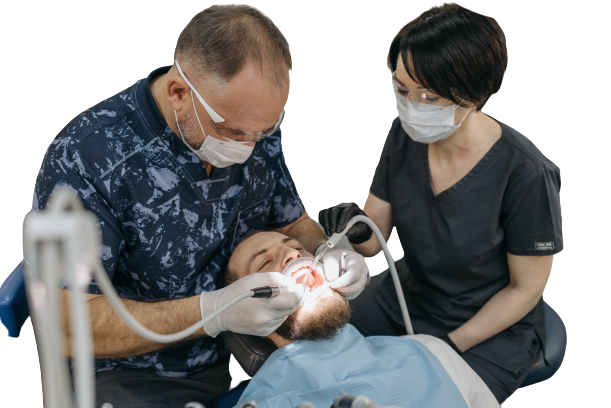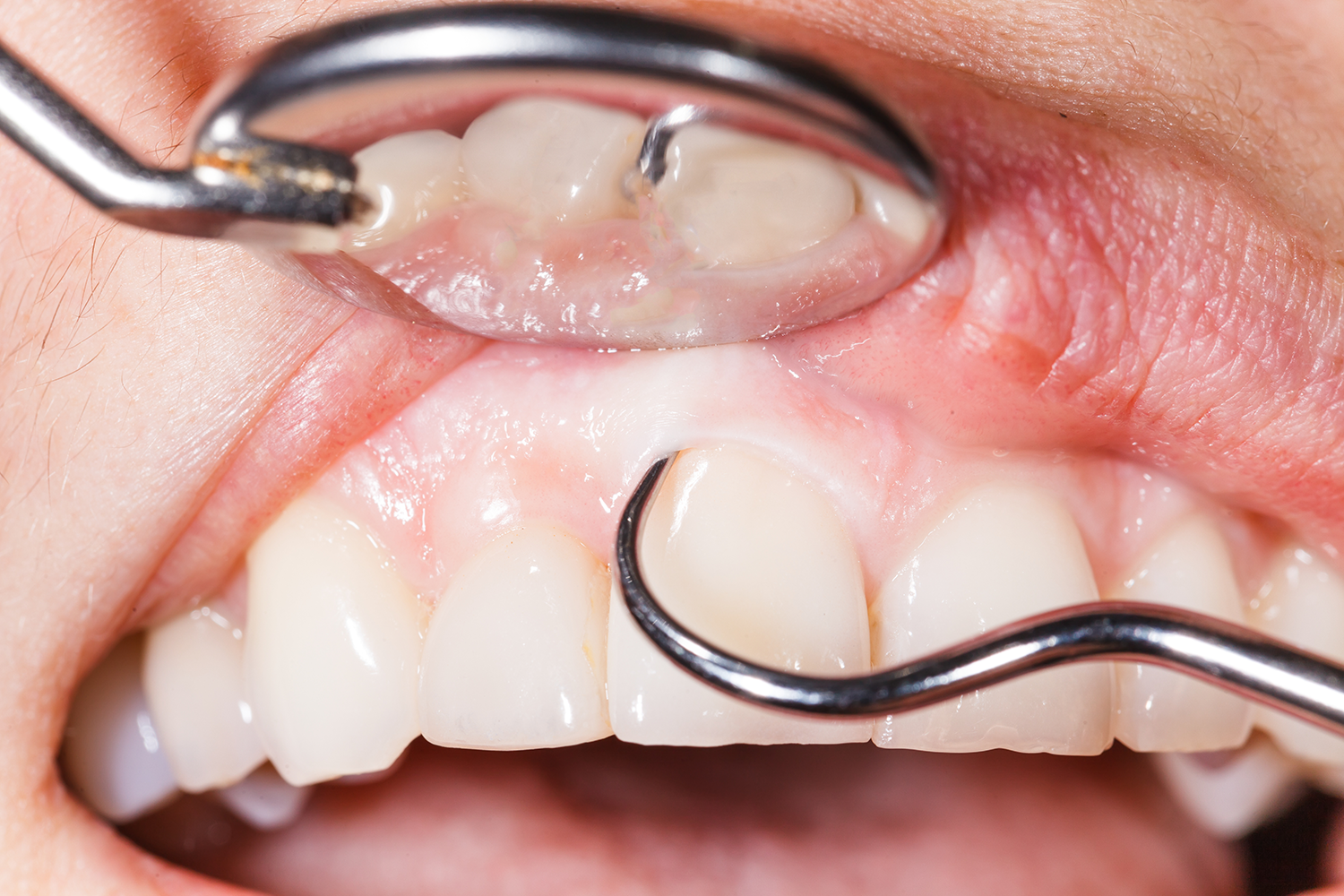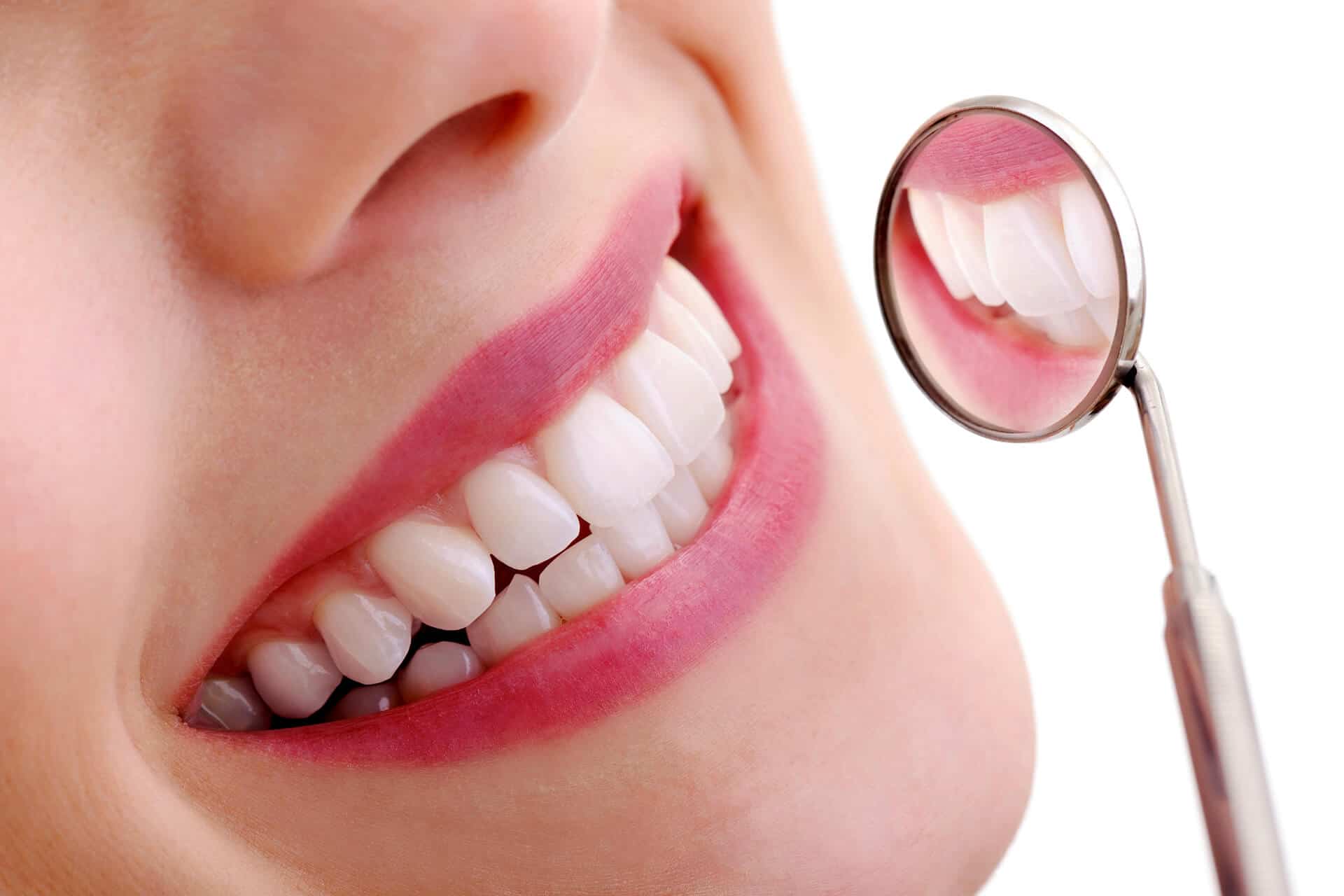If you have been told you have periodontal (gum) disease, you’re not alone. Many adults in the india currently have some form of the disease. Periodontal diseases range from simple gum inflammation to serious disease that results in major damage to the soft tissue and bone that support the teeth. In the worst cases, teeth are lost.
Whether your gum disease is stopped, slowed, or gets worse depends a great deal on how well you care for your teeth and gums every day, from this point forward.
If you're looking for a dental experience that is both affordable and painless, look no further than Triveni Dental.Triveni team specialize in gum treatment, mobile teeth, bad breath, and more. They use the latest technology to provide their patients with the best possible care. Whether you're a local or a visitor, Triveni Dental is the perfect place to go for all your dental needs.
Triveni Dental is your one-stop destination for all your dental needs. From simple checkups and cleanings to more complex treatments like gum surgery and tooth extractions, our team of experienced dentists are here to help. And because we know that many people get anxious about going to the dentist, we go above and beyond to make sure your experience is as comfortable and relaxing as possible. So whether you’re looking for a new dental home for your family or you need urgent treatment for a dental emergency, Triveni Dental is here to help.
Periodontal Disease Treatment
Bhiwani City may be bustling and fast-paced, but at Triveni Dental, we take the time to get to know each of our patients and provide them with the individualized dental care they deserve. Led by Dr.Kapil Sharma, our team of skilled dentists offers a wide range of services, from routine cleanings and preventative care to more complex procedures like gum treatment, teeth whitening, and more. Whether you’re looking for a new dental home for yourself or your family, we welcome you to Triveni Dental – where quality care is always our top priority.
Whether your gum disease is stopped, slowed, or gets worse depends a great deal on how well you care for your teeth and gums every day, from this point forward.
If you're looking for a dental experience that is both affordable and painless, look no further than Triveni Dental.Triveni team specialize in gum treatment, mobile teeth, bad breath, and more. They use the latest technology to provide their patients with the best possible care. Whether you're a local or a visitor, Triveni Dental is the perfect place to go for all your dental needs.
Triveni Dental is your one-stop destination for all your dental needs. From simple checkups and cleanings to more complex treatments like gum surgery and tooth extractions, our team of experienced dentists are here to help. And because we know that many people get anxious about going to the dentist, we go above and beyond to make sure your experience is as comfortable and relaxing as possible. So whether you’re looking for a new dental home for your family or you need urgent treatment for a dental emergency, Triveni Dental is here to help.
Periodontal Disease Treatment
Bhiwani City may be bustling and fast-paced, but at Triveni Dental, we take the time to get to know each of our patients and provide them with the individualized dental care they deserve. Led by Dr.Kapil Sharma, our team of skilled dentists offers a wide range of services, from routine cleanings and preventative care to more complex procedures like gum treatment, teeth whitening, and more. Whether you’re looking for a new dental home for yourself or your family, we welcome you to Triveni Dental – where quality care is always our top priority.
What causes gum disease?
Our mouths are full of bacteria. These bacteria, along with mucus and other particles, constantly form a sticky, colorless “plaque” on teeth. Brushing and flossing help get rid of plaque. Plaque that is not removed can harden and form “tartar” that brushing doesn’t clean. Only a professional cleaning by a dentist or dental hygienist can remove tartar.
Risk Factors
Smoking: Need another reason to quit smoking? Smoking is one of the most significant risk factors associated with the development of gum disease. Additionally, smoking can lower the chances for successful treatment. Hormonal changes in girls/women. These changes can make gums more sensitive and make it easier for gingivitis to develop. Diabetes. People with diabetes are at higher risk for developing infections, including gum disease. Other illnesses and their treatments. Diseases such as AIDS and its treatments can also negatively affect the health of gums, as can treatments for cancer.
Medications: There are hundreds of prescription and over the counter medications that can reduce the flow of saliva, which has a protective effect on the mouth. Without enough saliva, the mouth is vulnerable to infections such as gum disease. And some medicines can cause abnormal overgrowth of the gum tissue; this can make it difficult to keep teeth and gums clean.
Medications: There are hundreds of prescription and over the counter medications that can reduce the flow of saliva, which has a protective effect on the mouth. Without enough saliva, the mouth is vulnerable to infections such as gum disease. And some medicines can cause abnormal overgrowth of the gum tissue; this can make it difficult to keep teeth and gums clean.
Non-surgical Treatments for Gum Disease
- Professional dental cleaning: During a typical checkup your dentist or dental hygienist will remove the plaque and tartar (plaque that builds up and hardens on the tooth surface and can only be removed with professional cleaning) from above and below the gum line of all teeth. If you have some signs of gum disease, your dentist may recommend professional dental cleaning more than twice-a-year. Dental cleanings are not a treatment for active gum disease. They are, though, an important preventive measure that can help you stave off its development.
- Scaling and root planing: This is a deep-cleaning, nonsurgical procedure, done under a local anesthetic, whereby plaque and tartar from above and below the gum line are scraped away (scaling) and rough spots on the tooth root are made smooth (planing). Smoothing the rough spots removes bacteria and provides a clean surface for the gums to reattach to the teeth. Scaling and root planing is done if your dentist or periodontist determines that you have plaque and calculus (hardened plaque, also called tartar) under the gums that needs to be removed.
Surgical Treatments for Gum Disease
- Flap surgery/pocket reduction surgery: During this procedure the gums are lifted back and the tartar is removed. In some cases, irregular surfaces of the damaged bone are smoothed to limit areas where disease-causing bacteria can hide. The gums are then placed so that the tissue fits snugly around the tooth. This method reduces the size of the space between the gum and tooth, thereby decreasing the areas where harmful bacteria can grow and decreasing the chance of serious health problems associated with periodontal disease.
- Bone grafts: This procedure involves using fragments of your own bone, synthetic bone, or donated bone to replace bone destroyed by gum disease. The grafts serve as a platform for the regrowth of bone, which restores stability to teeth. New technology, called tissue engineering, encourages your own body to regenerate bone and tissue at an accelerated rate.
- Guided tissue regeneration: Performed when the bone supporting your teeth has been destroyed, this procedure stimulates bone and gum tissue growth. Done in combination with flap surgery, a small piece of mesh-like fabric is inserted between the bone and gum tissue. This keeps the gum tissue from growing into the area where the bone should be, allowing the bone and connective tissue to regrow to better support the teeth.
- Bone surgery: Smoothes shallow craters in the bone due to moderate and advanced bone loss. Following flap surgery, the bone around the tooth is reshaped to decrease the craters. This makes it harder for bacteria to collect and grow.

 Triveni
Triveni 



